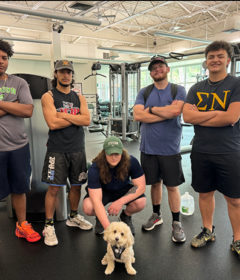Protecting Your Mental Health during COVID-19
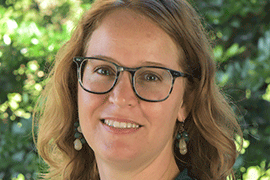
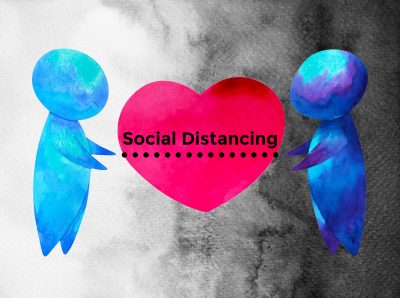
With the coronavirus causing sudden changes to students’ daily routines, Student Counseling Services remains available to provide support and help with their concerns and anxieties.

Stetson Today reached out to Leigh Baker, PhD, director of Stetson University Student Counseling Services, to learn how students are adjusting so far and how the Stetson Community can protect their mental health during this rapidly changing pandemic.
Just like everyone else, Baker has had her daily routine interrupted, too, and emphasizes that “we are ALL going through this together.”
• How has COVID-19 impacted the way that Student Counseling Services operates?
We have transitioned our counseling services to individual consultations via telephone through the end of the spring semester. Students may call (386) 822-8900 to speak with a counselor or to request a consultation during business hours (Monday through Friday, 8 a.m. to 12 p.m., and 1-4:30 p.m.).
After hours and on weekends, crisis counseling remains available by calling WellConnect at (833) 848-1765.
The Hatter Pantry, located inside the Counseling office, is open during business hours and provides food and toiletries to students in need. Students are asked to call ahead at (386) 822-8900 to ensure a staff member is able to provide access.
• The pandemic upended everyone’s life so abruptly. How are students handling it? Are you receiving more requests for services?
The Hatter community is showing their resilience while adjusting to the abrupt and ongoing changes in day-to-day life during this pandemic. Many students are beginning to get resettled into new living, social and academic arrangements after returning home last weekend. Some students are not there yet. It really depends on each person’s individual situation. We are not seeing an increase in demand for services at this time. We expect more students will reach out for support as their new routines are established.
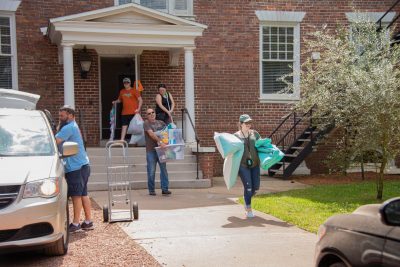
• What are some of the shared concerns and anxieties among students?
Anxiety is typically our #1 concern and that continues to be the case. Other common concerns include:
- Health and well-being of family and friends
- Difficulty transitioning to distance-learning
- Grief and loss (think graduation plans, study abroad, returning home internationally and campus life)
- Financial concerns (food, employment and housing instability)
- Managing mental health (access to social support, counseling and medication)
- Coping with trauma triggers (including an unsupportive home environment)
• How has COVID-19 changed your personal routine?
My personal routine has been interrupted, for sure! I have my two boys at home — TJ, 8 years old, and Johnny, 6 months old — so I’m juggling counseling, 3rd grade academics, and diapers right now. My extended family, friends and co-workers have been amazing supports. We are ALL going through this together.
• Could you share a few tips on how people can protect their mental health during this pandemic?
Sure. Here are tips for everyone:
- Beef up your self-care routine to cope with heightened stress.
- Eat well, sleep well, exercise daily.
- Maintain your routines to extent possible.
- Schedule regular contact with friends and family (social distancing approved, of course).
- Set limits on media consumption.
- Continue meditation and faith practices via videoconference.
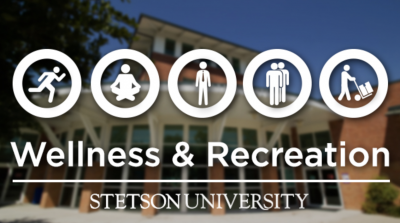
For those experiencing significant distress and/or managing a mental health condition, also consider the following:
- Reach out to counseling and medical providers to determine if telehealth options are available.
- Considering refilling prescriptions one week earlier than usual.
- Write down and sort your worries; problem solve what you can address and then try to let go of the rest.
- Recognize unhelpful thinking patterns (catastrophizing is common right now).
- Ask how would you treat a friend and try to give yourself the same kindness.
- Try not to react to strong emotions. Notice them and get curious. Use a “wise mind” to balance your thoughts and emotions.
- Focus on the here-and-now thorough mindfulness (vs. what might happen).
- Use one of these Six Types of Coping Skills (distraction, thought challenge, grounding).
Stetson University Student Counseling Services offers free crisis consultation and on-going services for currently enrolled students. Counselors are available by phone Monday through Friday, 8 a.m. to noon, and 1-4:30 p.m. After hours and on weekends, students can call WellConnect at 833-848-1765. The WellConnect service is available to students, no matter where they are located, 24/7.

